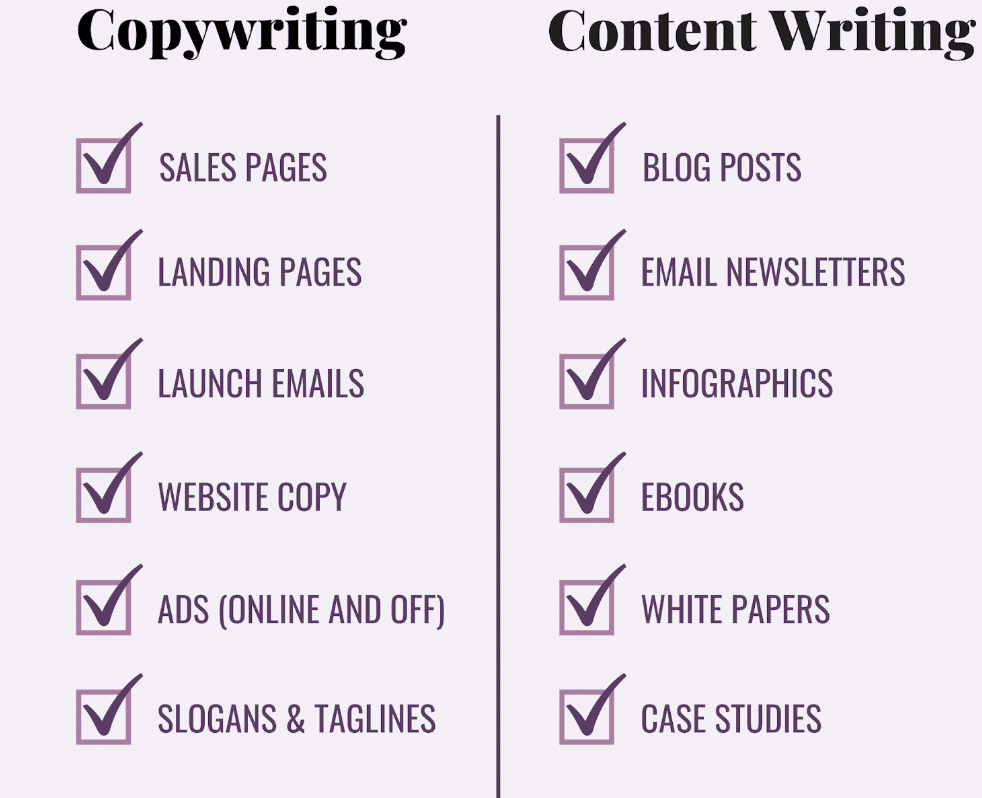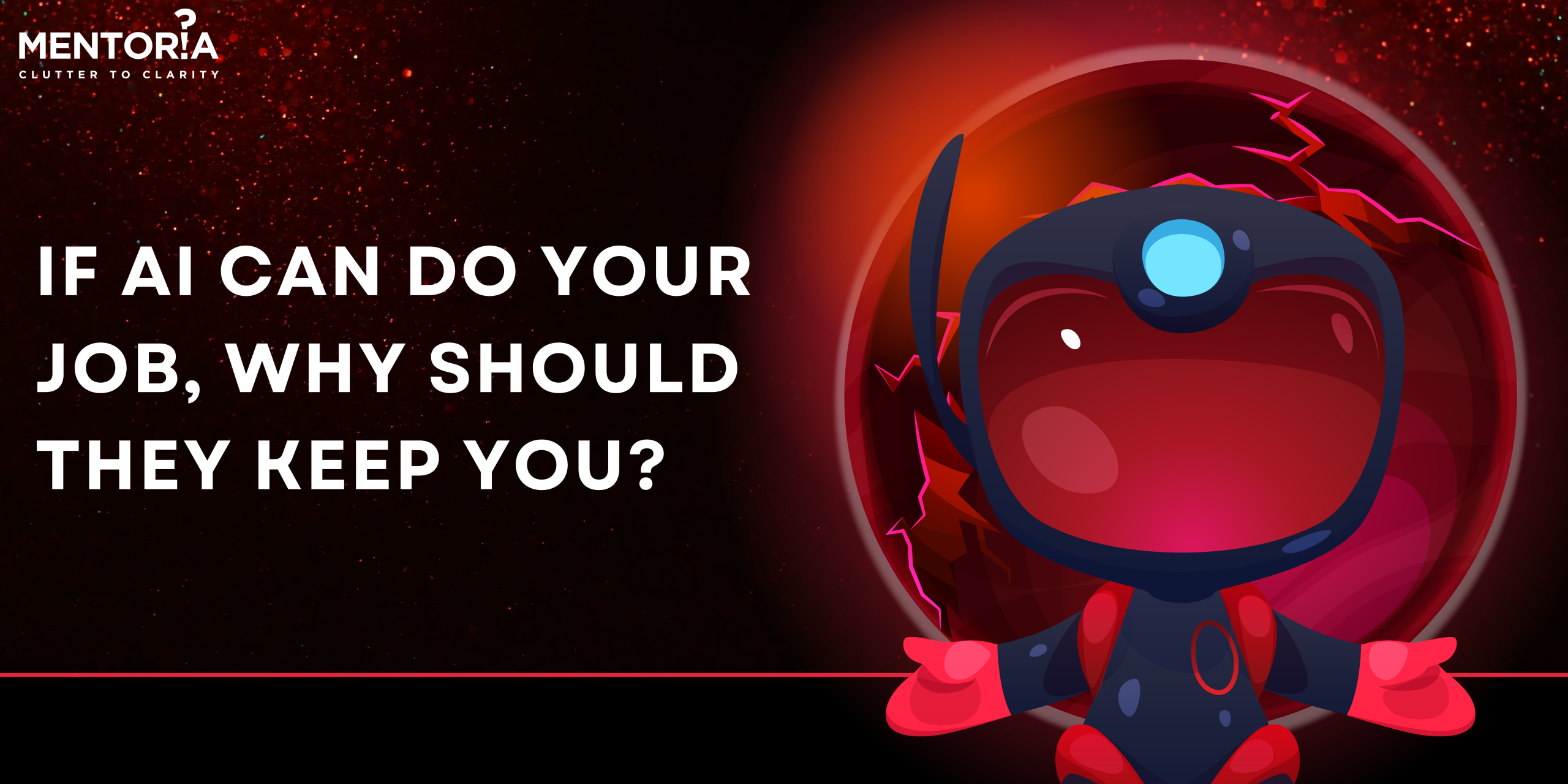Copywriter vs Content Writer: What’s the Difference?

What is a copy? Well, it’s just text. Plain old, simple text that conveys a message and communicates information. That being said, there are different types of copies, and depending on their intent, length, target audience, and reach, the nature of a copy can greatly vary. For example, in marketing, a copy can be in the form of social media posts, emails, blogs, ads, etc.
There are, however, two distinct forms of copies that are completely unrecognisable from each other. They are copywriting and content writing. While they do fall under the same broad umbrella of marketing, their respective purposes could not be further apart.
So, what is the difference between a copywriter and content writer?
They sound alike? Yes, most certainly. However, here’s how they differ!
Copywriting involves coming up with text that is intended to be used in advertising. A copywriter’s job is to make the content in such a way that it’s memorable, catchy, and leaves a lasting impression on the reader. Since the main intent of copywriting is to drive up brand awareness and eventually, sales, the copy needs to be persuasive which involves a lot of creativity and proper structuring on the part of the writer.
Examples of copywriting include sales emails, PPC ads, billboards, taglines, social media ads, headlines, etc. As you can see, all these forms of texts are always short and purpose-driven. They’re designed in a manner to be quick and efficient in delivering the intended message with the ultimate goal of getting the reader to become a prospective buyer.
Content writing, on the other hand, is the creation of text primarily to educate or entertain the reader on a certain topic. It may be used to drive up sales but that’s not really its original intent. A content writer’s focus is on creating quality and informative content to result in increased reader engagement. Basically, it is a means to generate an audience for potential leads by piquing their interest in your products or services. The content is generally well researched and well written.
Content writing utilises search engine optimisation (SEO) to generate web traffic and reach a wider audience. Examples of content writing are blogs, newsletters, articles, e-books, FAQs, guides, etc.
In a nutshell, while a content writer informs your audience about your brand, a copywriter sells the idea of investing in it.
Let’s dive deeper into the factors that differentiate a copywriter and a content writer.
- Skill Sets
As a copywriter, you are expected to keep your write-up short and persuasive. To achieve this without a drop in quality or leaving important stuff out, you need to be able to keep the content concise and to the point. This requires a firm grasp of grammar and vocabulary and a certain level of problem-solving. Being a copywriter also comes with an expectation of possessing a flair and panache in your writing. Your text needs to be memorable and incite a certain feeling in the readers’ minds. This is achieved through creative thinking.
A content writer, too, needs to be good at grammar, vocabulary, problem solving, and creative thinking but utilise these skills in a completely different manner. Content is all about educating and informing the readers through your content. You need to be incredibly thorough with your research to come off as a credible and reliable source of information. The length of your text is always going to be a lot bigger than a copywriter’s and hence, you need to be able to keep the reader hooked throughout the piece. As a content writer, you may need a decent amount of technical knowledge based on the type of brand you are covering. Finally, due to the larger size of the text, a content writer should be well versed in SEO.
Type of Content
Copywriting revolves around the concept of reader engagement. This can be achieved through short, attention-grabbing pieces that have been designed to get the reader to act. The length of a copy is usually less than a hundred words and rarely crosses that mark. Its very essence is to be instantly impactful. Commercial value is the name of the game when it comes to copywriting. All the examples of copies you may have come across, such as ads, slogans, taglines, lyrics of a jingle, and social media captions, are really short and catchy. They tend to get stuck in our minds and incite certain feelings that may encourage us to invest in the brand.
Content writing, however, is a lot more detailed and focuses on expanding upon the topic at hand. The goal of a content writer is to educate the reader, and this can be done properly only if the content is thorough and covers all the aspects necessary. This is the reason why content writers end up writing anywhere between 500 and 2000 words, and sometimes maybe even more than that. This allows him or her to cover all the nuances of the subject matter. Secondly, content writing is associated with non-commercial value and if the text is too short, it tends to detract from that value. As a result, content examples such as e-books, magazines, blogs, articles, reviews, etc., end up being longer and more comprehensive than a copy.
Emotions
Emotions are a massive factor and a key differentiator between copywriting and content writing. In the case of the former, the writer creates the text in such a way that evokes an emotional response from the reader. For example, a catchy tagline tends to get stuck in our heads or a bold headline or stats could make us feel FOMO (fear of missing out). The key is to get the reader to act and invest their resources in the brand. A copywriter does this by calling out the readers’ pride, needs, or even the feeling of belonging amongst their peers.
Content writing is a lot more rational as compared to copywriting. While getting the readers to feel something is always good, the primary goal is to thoroughly educate and inform them about the brand itself. Through their massive content, a content writer appeals to a different set of emotions such as satisfaction, knowledge, a sense of achievement, and overall growth.
Strategy and Approach
Persuade. Compel. Get them to act. These are the three basic principles when it comes to copywriting. You don’t have the time nor the space to beat around the bush with your text. The aim is to turn an uninterested or a semi-interest reader into a buyer. As a copywriter, you only have a few words or sentences to get your point across in a catchy and compelling manner.
As a content writer, on the other hand, you have a lot more room to play around in. The larger wall of text gives you a lot more time to hook the readers in and actually educate and entertain with regards to a certain brand. You can diversify your content and use tools such as graphs, visuals, and charts to get your readers interested in the topic being covered and potentially turn them into leads.
Reach
Maximising your reach is a key aspect of both copy and content writing. The more people your piece reaches, the better leads and traction it’s going to generate. Search engine optimisation (SEO) is a crucial element of maximising reach and it’s a lot more important in content writing as compared to copywriting. Content writing, by its very nature, can’t perform very well without SEO and due to its large size, a content writer can make use of it for optimal reach. For copywriting, the scope of SEO is quite limited and honestly, it’s a lot less important for the compelling and persuasive text it makes use of.
Both copywriting and content writing fall under the same general umbrella of marketing. Due to the attention-grabbing and catchy nature of his text, a copywriter focuses more on the advertising side of things. A content writer, on the other hand, deals with educating and informing his audience through a piece that is thorough and well researched.
Get #CareerReady with Mentoria!
Do you believe you have an interest in being a copywriter or a content writer and possess the skills and creativity to make it into a profession? Well, look no further than Mentoria. We specialise in gauging your likes and dislikes and mapping out a career path for you accordingly. Get in touch with us!







